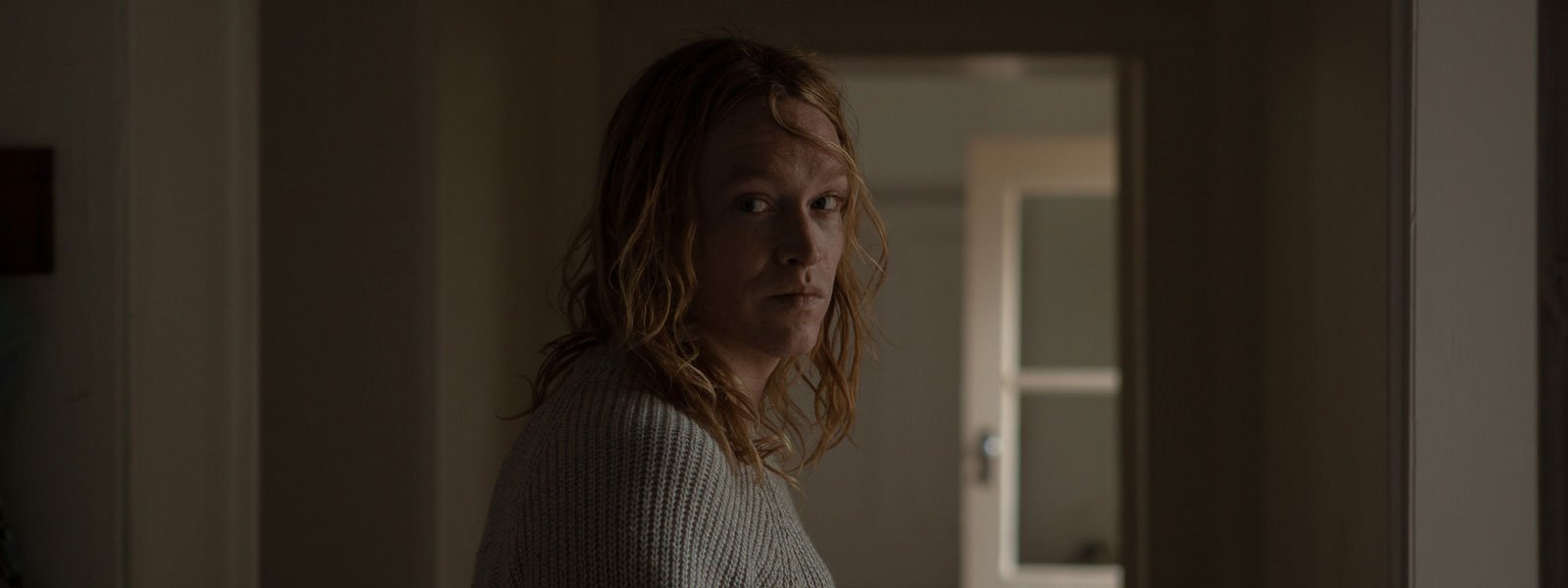Help keep The Curb independent by joining our Patreon.
Complicated cinema is a tricky beast. It moves in the shadows, questioning the darkest aspects of humanity, unveiling aspects of society that have been morphed, contradicted, and falsely critiqued in mass media. It can often ask us to empathise, or at the very least reconcile, with some of the most heinous and cruel individuals to have erupted out of the gaping fissures of the world. We only know of their existence due to the havoc and destruction they wreak upon those they choose to hate, causing countless deaths. With their pain inflicted, their only conclusion now is to be captured and imprisoned, whether in a cell or a coffin.
Yet, a film of their lives or their acts can be seen to further their legacy, amplifying their trauma-inducing actions and rhetoric. Even decades after the events, the wounds of the afflicted can still be fresh, struggling to ever truly heal, and a film about a perpetrator can further exacerbate that pain. Out of violent tragedy rises the possibility of exploitation and manipulation by those distantly removed from the event. Opportunistic filmmakers and storytellers emerge, looking to manipulate tragedy for their own gain.
Ultimately, this leads to the eternal question when a film that details the life of a mass murderer is conjured into the world: why.
Why do we need a two-hour film following someone we know committed horrific events and scarred a country with the deaths of thirty-five people, with twenty-three left injured? For those who lived within the continual media coverage of the event twenty-five years ago, the memory lingers large and long. But, for a younger generation, they may be unaware of the reasoning behind why Australia has strict gun laws, and what event created such a drastic change.
All this preamble is to strengthen the defence, of sorts, against the expected immediate reaction to Justin Kurzel’s latest film, Nitram. Given the exploitative, horrific, and downright disgusting portrayal of true events in the actively cruel true crime horror, Snowtown (Kurzel’s feature debut), it’s understandable why many (this reviewer included) would be apprehensive about Kurzel addressing one of Australia’s most horrific and traumatic modern events: the Port Arthur massacre of 1996.
With a transformative, searing performance from American actor, Caleb Landry Jones, as the titular perpetrator, Nitram evolves from being a domestic character study of a freefalling family, into a gripping, devastating, and ultimately respectful essay of tragedy writ large, with a coda that aims to bolster the anti-gun rhetoric around the world. Landry Jones comfortably steps into the role of a wayward Australian, all long blonde hair, freckles, and a wavering voice of nervousness*. It’s both pointed and inspired casting, having an American playing an Australian, playing like an extension of the delirium-esque adoration that a vocal section of the US has as pro-gun owners, coming across as an unseen infection into Australian society; so much so that Australian politicians seeking to water down gun laws echo the NRA media lines like conditioned parrots in parliament.
Comfortably supporting Landry Jones as his parents are Judy Davis and Anthony LaPaglia. Here, Davis’ Mother is a slender and weathered being, the effects of raising a turbulent, propulsive child hanging on her every second of the day. Haunting moments of introspection come from Davis sitting in what quiet refuge she can outside her house, staring into the middle distance, questioning how exactly she landed at this point in her life. It takes a rare kind of professional to exhibit such a deep well of introspective existence, but Davis embodies it with a frustration and fury that is unparalleled.
Matching Davis at every step is LaPaglia, almost unrecognisable as a sheepish father who doesn’t know how to control or connect with his son. Weight gathers around his waist like a sinker he can’t shake loose, building up over time as he realises that his hopes, dreams, and aspirations gradually slough away under the burden of his son, society, and plain old bad luck. Together, these struggling parents exist as beings that have fallen out of a non-existent safety net, left adrift in a world where they have no handhold to grab onto.
Kurzel and Grant pointedly avoid criticism of his parents, instead, laying bare a need for a societal support system that provides space for great mental health care. The cognitive dissonance that the man behind the gun and the fact that he may not be evil all the time is a difficult thing to sit with, yet in a complex decision, they also decide to never truly make Nitram an absolute villain, a move that will likely upset some audience members. Set during the early nineties, Nitram plays at times like a criticism of Howard-era politics. While the important and swift gun legislation managed to take thousands of dangerous weapons off the street, his government failed to provide any systemic support for those who might find themselves straying towards this kind of dangerous life.
Rounding out this central trio is an equally unrecognisable Essie Davis, playing wealthy heiress, Helen Harvey. He arrives at Helen’s house, seeking work mowing lawns to earn enough money to buy a surfboard to impress a stranger he has seen on the beach. Helen’s abode is unkempt, the smell of a burgeoning pack of dogs emanating from the screen. High ceilings give freewheeling flies the space to escape certain death, not that the occupants try to extinguish them. Helen embraces her life of solitude, supported by a seemingly unending fortune, yet Landry Jones’ presence appears to be the connection to humanity she craves.
Davis and Landry Jones share a delicate bond during Nitram’s most tender moments. For a moment, it feels like Kurzel and Grant are asking the audience to empathise with grand complicity for Landry Jones, yearning for a fruitful relationship between the two, but then the anxiety-provoking sound design by James Ashton and team seeps into the soundscape. Nitram amplifies the anxiety of existence that permeates our day to day lives, with the sound of an unceasing fly hovering in a room bleeding into the early morning vibrato of suburban lawnmowers, making way for clicking fingernails and fretting breaths. A moment where Helen tries to teach Landry Jones how to play the piano feels off-kilter in a way that resembles an oncoming panic attack. As minute after minute locks itself away in the past of our lives, the permeating feeling that oxygen is gradually being removed from the room is hard to escape. Working in off-kilter harmony with this sound design is Jed Kurzel’s score that stifles and overwhelms like an oncoming freight train panic attack.
The unbearable tension of being emanates directly from Landry Jones central performance, with his reactionary and unexpected physicality crafting a young man anxiously and apprehensively moving through life. Landry Jones never explicitly plays him as a stereotypical anxious person, but his mannerisms, physique, and guarded eyeline build him up as such. Clothes hang off Landry Jones like he’s some kind of David Byrne knock-off, yet instead of being in on the guise, he wears them with like a cloak of protection, fingers hanging barely out of the sleeves like that was how they were always intended to be worn, his body barely peering out from the curtain of hair that hangs over his face. Any further covered, and he would fully recede into himself.
In a pointed decision, Shaun Grant’s script removes reference to the murderer’s name, while merely leaving his parents credited as just ‘Mother’ and ‘Father’. This is still a story about that man, with Nitram opening with actual footage of a youthful kid recovering in hospital after being severely burned after playing with fireworks, admitting that even after sustaining serious injury, he would gladly play with them again. By de-identifying him and removing direct reference to his name throughout the film, it helps ‘other’ his story, while also making way for the core anti-gun message of the film.
The answer to the question as to ‘why’ this film exists is answered with gut churning power in a climactic scene where Landry Jones easily strolls into a gun store, purchases assault rifles and shotguns without a gun license, and walks out with a smile from the store owner. If there’s a moral core to Nitram, it’s as a defiantly anti-gun drama that’s driven towards a maelstrom of hinted catastrophe at the films close. Kurzel wisely chooses to avoid the violence of the massacre, taking us to the precipice of the tragedy and denying the carnage a place to live on.
As the film closes, Kurzel and Grant inform us that there are more guns in Australia now than there were in 1996, an utterly terrifying realisation of how little has changed, even under the guise of progression. With members of parliament actively working to water down gun legislation, Nitram reminds us how hard we have to work to keep our gun laws in place.
Shaun Grant talked in an interview about how an ‘evil ignored is evil repeated’, and with continual mass shooting events taking place around the world, the notion of needing a film like Nitram feels all the more pressing and urgent than ever before. Twenty-five years on from the event, and twenty-two years removed from the Columbine school shooting, it becomes even more salient to remember why change needs to take place, and why that change needs to be protected at all costs.
Where Kurzel’s True History of the Kelly Gang played with the art of mythology and mythmaking, Nitram is steeped in a grounded reality, eking an empathetic truth out of a story that could have otherwise rejected any notion of that taking place. There is a grand level of maturity to Nitram that feels surprising and unexpected, ultimately leading to the realisation that Kurzel and Grant have tried to honour the tragedy with as much consideration as possible. Vital, devastating, and will leave you with a weight of despair and anguish that precious few films will leave you with. You should not be able to shake off a film like Nitram, and for that reason alone, it earns its place as a knot in your stomach.
*It says a lot about Australian culture that Jones prepared for the role by watching YouTube videos of Hey, Hey, It’s Saturday!
Director: Justin Kurzel
Cast: Caleb Landry Jones, Judy Davis, Anthony LaPaglia, Essie Davis
Writer: Shaun Grant
Editing: Nick Fenton
Music: Jed Kurzel
Sound Design: James Ashton



